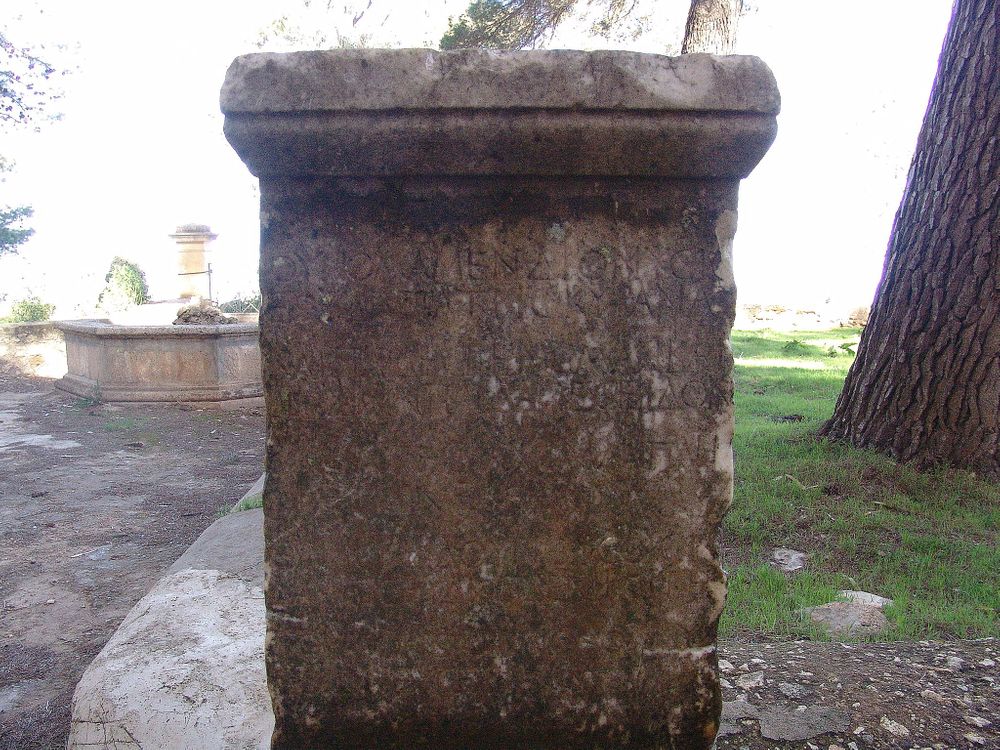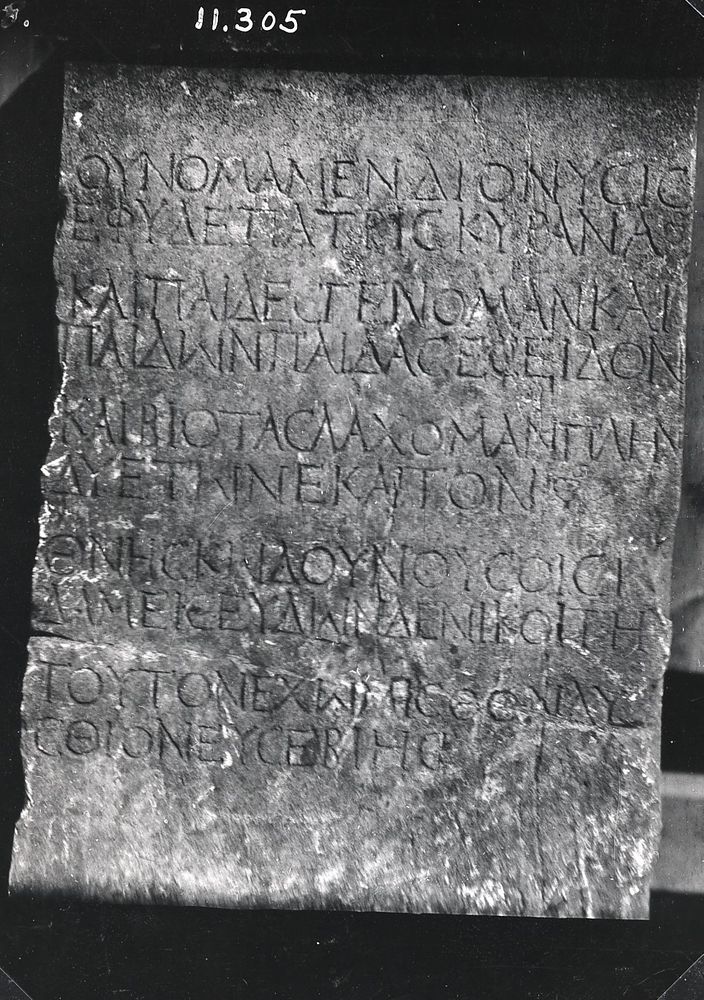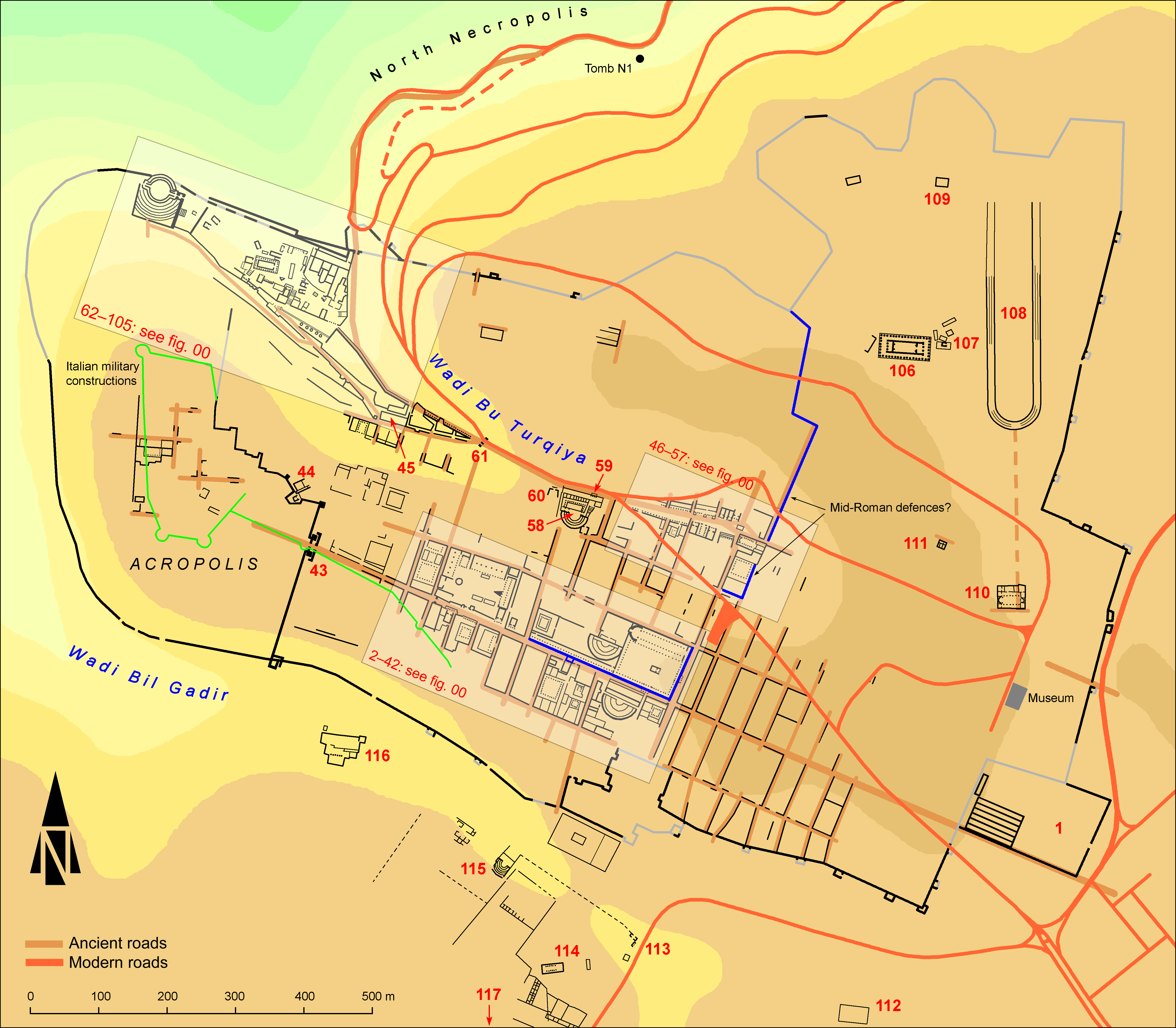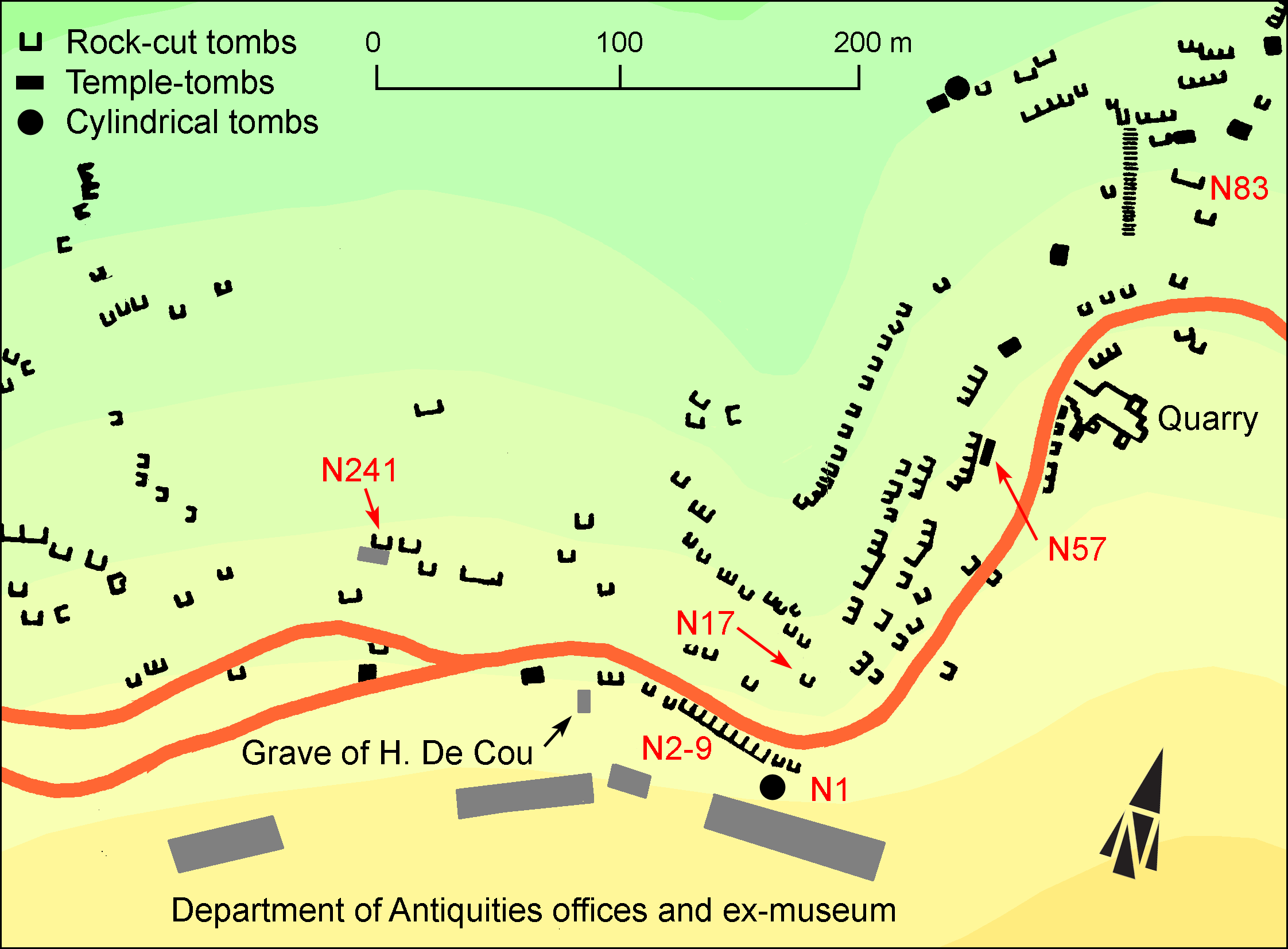EpiDoc XML:
GVCyr0132
Trismegistos ID:
105905
Source description
Support: White marble tapering stele, with a moulding above on three sides
(w: 0.41 × h: 0.96 × d: 0.29).
Layout: Inscribed on front face under the moulding
(w: 0.365-0.39 × h: 0.86 × d: 0.25-0.275), in 10 lines grouped by pairs.
Letters: 0.025; triangular letters with projecting right stroke, lunate epsilon and sigma, slanting mu, sometimes smaller omicron,
'upside-down M'-shaped omega
Date: Perhaps third century AD
Findspot: Found in November 1910 by the Norton mission at Cyrene ➚:
in the North Necropolis, in the area East of tomb N270 Cassels.
Place of origin: Findspot.
Last recorded location:
Seen by C. Dobias-Lalou in 1982 and again 2004 in Shahat: in a row displayed on the
Terrace of the Office of the Department of Antiquities.
Text constituted from: Transcription from stone (CDL).
Bibliography
Robinson 1913, n. 35 and fig. 25, also p. 504; Peek 1955, n. 1102; GVCyr 013 ➚. Cf. Santucci – Uhlenbrock 2013, pp. 11-13 (area of discovery); Dobias-Lalou 2014, pp. 327-328, whence SEG, 64.2009.
Text
Interpretive
Οὔνομα μὲν Διονύσις
ἔφυ δὲ πατρὶς Κυράνα
(vac. 1 line)
καὶ παῖδ⸢α⸣ς γενόμαν καὶ
παίδων παῖδας ἐσεῖδον
(vac. 1 line)
5καὶ βιοτᾶς λαχόμαν πλὴν
δύ' ἐτῶν ἑκατόν·
(vac. 1 line)
θνήσκω δ' οὐ νούσοισι
δαμεὶς, εὕδων δ' ἐνὶ κοίτῃ·
(vac. 1 line)
τοῦτον ἔχω μισθὸν λύ-
10σθιον εὐσεβίης.
3 ⸢α⸣ lapis ε (sic)
Metrical
| Οὔνομα μὲν Διονύσις | ἔφυ δὲ πατρὶς Κυράνα | (vac. 1 line)
| καὶ παῖδ⸢α⸣ς γενόμαν καὶ | παίδων παῖδας ἐσεῖδον | (vac. 1 line)
| (5) καὶ βιοτᾶς λαχόμαν πλὴν | δύ' ἐτῶν ἑκατόν· | (vac. 1 line)
| θνήσκω δ' οὐ νούσοισι | δαμεὶς, εὕδων δ' ἐνὶ κοίτῃ· | (vac. 1 line)
5 | τοῦτον ἔχω μισθὸν λύ|(10)σθιον εὐσεβίης.
3 ⸢α⸣ lapis ε (sic)
Diplomatic
ΟΥΝΟΜΑΜΕΝΔΙΟΝΥΣΙΣ
ΕΦΥΔΕΠΑΤΡΙΣΚΥΡΑΝΑ
vacat
ΚΑΙΠΑΙΔΕΣΓΕΝΟΜΑΝΚΑΙ
ΠΑΙΔΩΝΠΑΙΔΑΣΕΣΕΙΔΟΝ
vacat
5ΚΑΙΒΙΟΤΑΣΛΑΧΟΜΑΝΠΛΗΝ
ΔΥΕΤΩΝΕΚΑΤΟΝ
vacat
ΘΝΗΣΚΩΔΟΥΝΟΥΣΟΙΣΙ
ΔΑΜΕΙΣΕΥΔΩΝΔΕΝΙΚΟΙΤΗ
vacat
ΤΟΥΤΟΝΕΧΩΜΙΣΘΟΝΛΥ
10ΣΘΙΟΝΕΥΣΕΒΙΗΣ3 ⸢α⸣ lapis ε (sic)
French translation
Translation source: Dobias-Lalou 2014
Dionysis est mon nom et Cyrène, ma patrie ;
j'ai engendré des fils et connu les fils de mes fils
et le sort m'a donné une vie où deux ans manquaient pour faire cent.
Je meurs non parce que la maladie m'a dompté, mais en plein sommeil dans mon lit;
je trouve là l'ultime contrepartie de ma piété.
English translation
My name is Dionysis, my homeland Cyrene;
I fathered sons and saw the sons of my sons;
the fate granted me with a life of hundred years but two.
I do not die subdued by any illness, but while sleeping in my bed,
getting thus the last reward of my piety.
Italian translation
Il mio nome è Dionysis, la mia patria Cirene;
ho generato figli e visto i figli dei miei figli;
la sorte mi ha concesso una vita di cento anni meno due.
Muoio non vittima di una malattia, ma mentre dormo nel mio letto.
Questo è il premio ultimo per la mia pietà.



